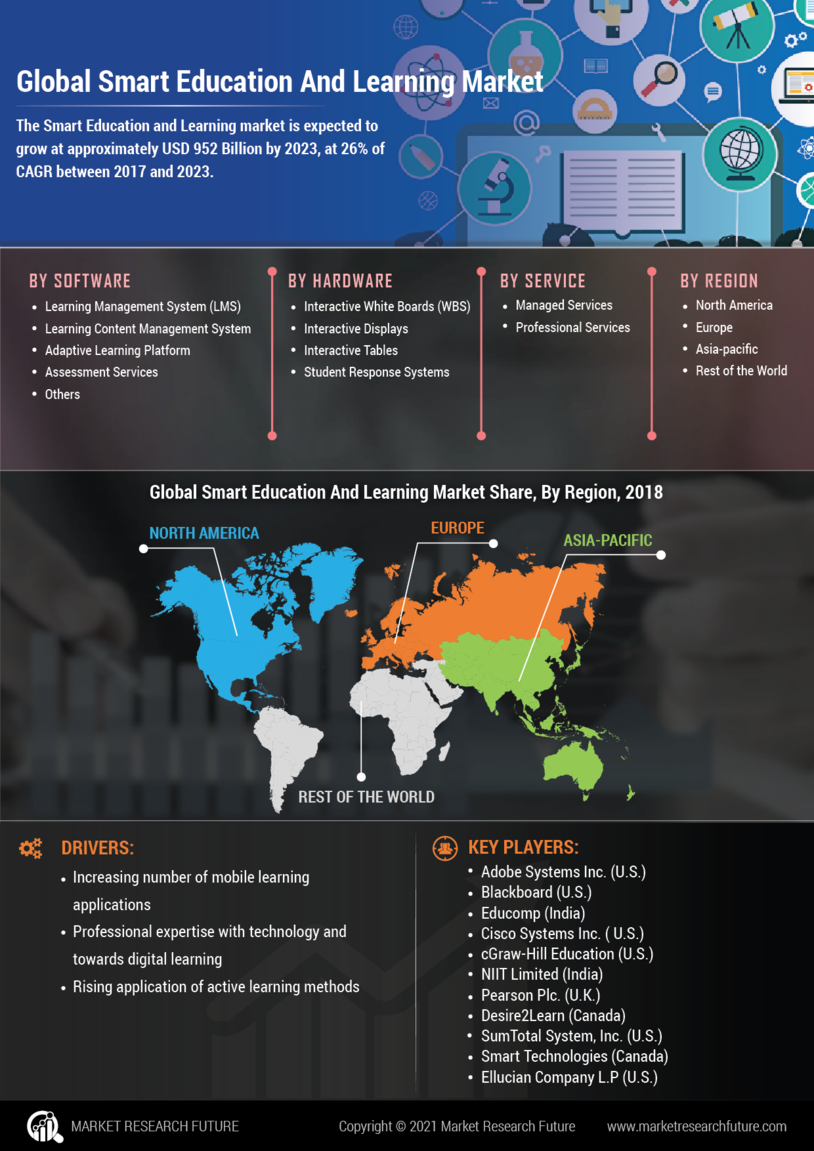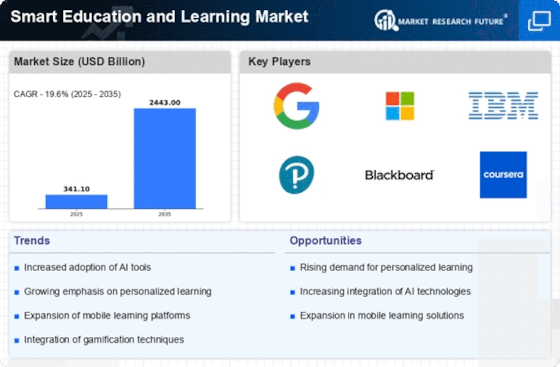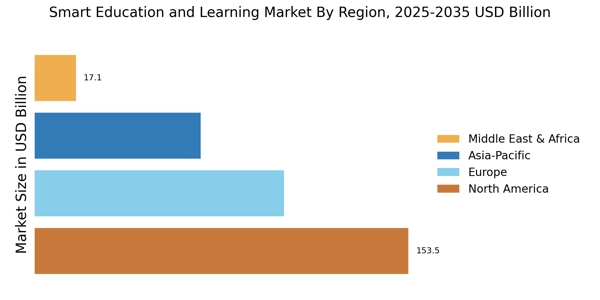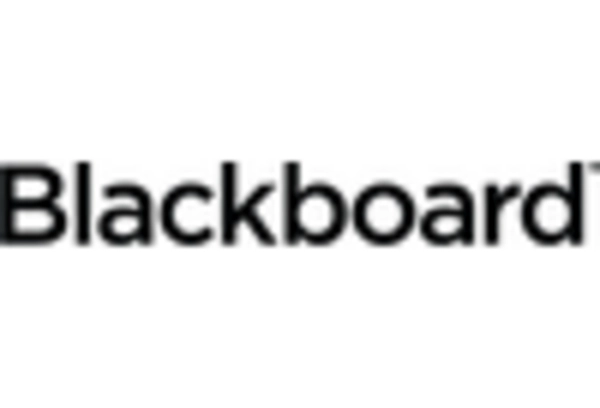Smart Education and Learning Market Summary
As per Market Research Future analysis, the Smart Education and Learning Market Size was estimated at 341.1 USD Billion in 2024. The Smart Education and Learning industry is projected to grow from 407.95 USD Billion in 2025 to 2443.0 USD Billion by 2035, exhibiting a compound annual growth rate (CAGR) of 19.6% during the forecast period 2025 - 2035
Key Market Trends & Highlights
The Smart Education and Learning Market is experiencing robust growth driven by technological advancements and evolving educational needs.
- Personalized learning solutions are increasingly being adopted to cater to diverse student needs.
- The integration of artificial intelligence is transforming educational methodologies and enhancing learning experiences.
- North America remains the largest market, while the Asia-Pacific region is recognized as the fastest-growing area in smart education.
- The increased demand for flexible learning solutions and technological advancements in educational tools are key drivers propelling market growth.
Market Size & Forecast
| 2024 Market Size | 341.1 (USD Billion) |
| 2035 Market Size | 2443.0 (USD Billion) |
| CAGR (2025 - 2035) | 19.6% |
Major Players
Google (US), Microsoft (US), IBM (US), Pearson (GB), Blackboard (US), Coursera (US), Udacity (US), Instructure (US), D2L (CA), Knewton (US)


















